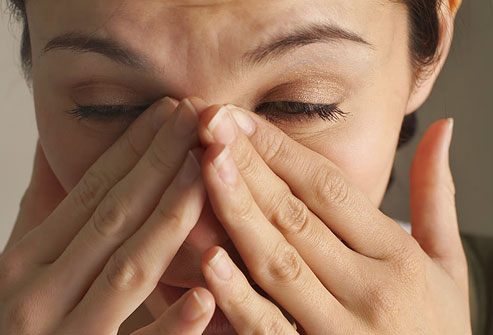When one hears the word polyps, the next thing that enters his mind is cancer. However, this is not always the case. Take for example, nasal polyps which are noncancerous growths that occur in the nose or sinuses. Nasal polyps are common among adults especially those who have allergies and asthma.Nasal polyps won’t be a problem if they are too small.
But the larger ones can jam the natural drainage from the sinuses. This results to the accumulation of mucus in the sinuses, resulting to infection and thick, discolored drainage in the throat and nose. In rarer cases, the nasal polyps can become so large that they shove the nasal bones apart resulting to broadened nasal bridge. This could negatively affect a person’s looks and lower his or her self-esteem.
Risk Factors
Nasal polyps may happen to people of all ages, although those who are aged 40 and above are the most prone to this condition. It is very rare for children aged 10 to have nasal polyps. Nasal polyps form because of chronic inflammation due to allergies, asthma, infection, and sensitivity to drugs.
These explain why noncancerous growths are always linked with allergic rhinitis, sinus infections, asthma, and acute and chronic infections. At times, nasal polyps develop first before sinusitis or asthma.
Symptoms
 How would you know that you have nasal polyps? Usually, people who suffer from nasal congestion and obstruction, sneezing and runny nose have this condition. Those who have postnasal drip, experience facial pain and have decreased ability to smell could also have nasal polyps. It is said that three out of four people with nasal polyps have decreased capacity to smell. Other symptoms of this condition are loss of taste, chronic infections and itching around the eyes.
How would you know that you have nasal polyps? Usually, people who suffer from nasal congestion and obstruction, sneezing and runny nose have this condition. Those who have postnasal drip, experience facial pain and have decreased ability to smell could also have nasal polyps. It is said that three out of four people with nasal polyps have decreased capacity to smell. Other symptoms of this condition are loss of taste, chronic infections and itching around the eyes.
If your symptoms of nasal polyps last for more than 10 days, then you might have to see a doctor. However, there is a chance that you may confuse the symptoms of nasal polyps with chronic sinusitis. Still, if you continue to suffer from runny nose, postnatal drips, and sneezing for nearly two weeks you really have to consult a specialist. You also have to seek emergency medical help once you experience difficulty in breathing, double vision or inability to move your eyes.
Treatment
Generally, doctors prescribe antihistamines to control allergies, or antibiotics to manage an infection in curing nasal polyps. A prescription drug that is typically given to control the symptoms of nasal polyps is Nasonex. It treats and prevents nasal problems like sneezing, nasal congestion and runny nose due to seasonal allergies. It is also prescribed to treat the growth of nasal polyps. This drug has the generic name mometasone and comes in nasal spray form.
In cases when the nasal polyps have become so large that corticosteroid nasal sprays are no longer appropriate for use, surgery is considered. Surgical procedures use a small nasal telescope to remove the nasal polyps while maintaining the normal condition of the tissues. The procedure is simple that the patient can go home on the very same day of the surgery.
Share This